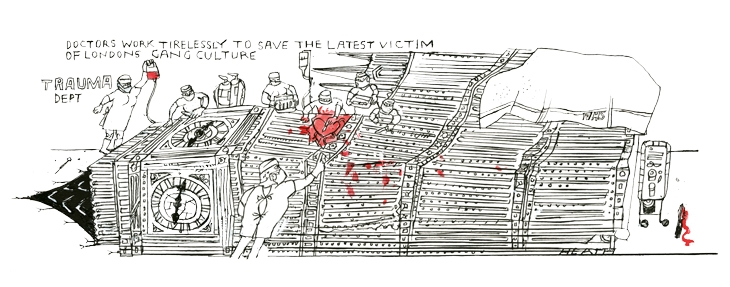Home
Brexit threw politics into unpredictable chaos. The government was defeated by an unparalleled majority of 230 — 432 to 202 — on the withdrawal agreement it had negotiated with the EU. The result was greeted by cheers from demonstrators outside the House, both those in favour and those against Brexit. Labour tabled a motion of no confidence for the following day. Theresa May, the Prime Minister, said in the House after the vote: ‘The House has spoken and this government will listen.’ She said she would talk to senior parliamentarians and that the government would return to the House on Monday with proposals. This arrangement was in line with a business amendment by Dominic Grieve that the Speaker had allowed the week before. The Speaker’s decision had contradicted precedent and the advice of the Commons clerks.
The immediate response to the government defeat was for most people to seek the outcome they had sought before: a second referendum, a Brexit without an agreement or a renegotiated agreement. Donald Tusk, the President of the European Council, hoped that Brexit would be reversed, tweeting: ‘If a deal is impossible, and no one wants no deal, then who will finally have the courage to say what the only positive solution is?’ Sir Andy Murray wept as he explained for the cameras that his chronic hip injuries meant his tennis career must end this year.
The Welsh were found to be the nation in western Europe with the highest proportion in jail. West Midlands Police had failed to record 16,600 violent crimes a year, 22 per cent of the total, according to Her Majesty’s Inspectorate of Constabulary. Jail sentences of less than six months could be abolished, allowing 30,000 fewer prisoners to burden the system, the Prisons Minister Rory Stewart suggested. Michael Gove, the Environment Secretary, renewed his war against wood-burning stoves and coal fires. Sir Michael Atiyah OM, the mathematician, died aged 89. Marks & Spencer named 17 more shops to be closed, of the 100 to go by 2022, in provincial towns and cities, from Ashford to Weston-super-Mare.
Abroad
Much of the federal government of the United States remained shut down while President Donald Trump refused to approve a federal budget that did not include funds for a wall along the Mexican border. ‘I never worked for Russia,’ Mr Trump said in reply to reporters asking about a Washington Post report that he had concealed a translation of a meeting with President Vladimir Putin. Referring to a withdrawal of American troops from Syria, the US President tweeted that he would ‘devastate Turkey economically if they hit Kurds’, with whose Kurdish People’s Protection Units the United States had been fighting the Islamic State. Ten per cent of the population of Segovia in Spain signed a protest against a statue of Satan because it looked too jovial. Avalanches crashed into hotels in Austria and Germany where snow many feet deep accumulated in the mountains.
Laurent Gbagbo, the former president of the Ivory Coast, was acquitted at the International Criminal Court in the Hague of crimes against humanity relating to disputes over the election of 2010, which left 3,000 dead. Al-Shabaab said it was behind an attack on the DusitD2 hotel in Nairobi, which underwent a siege with loss of life. Cesare Battisti, a communist terrorist wanted in Italy for four murders in the 1970s, was extradited from Bolivia, to which he had fled last month from Brazil. The mayor of Gdansk died a day after being stabbed on stage at a charity event; a man was arrested. China started growing bean sprouts on the far side of the moon.
Cern published plans for a £20 billion successor to the Large Hadron Collider with a circumference of more than 60 miles. Rahaf Mohammed, 18, was taken in by Canada after having flown to Thailand and barricaded herself in a hotel room while appealing on Twitter for help to escape her family in Saudi Arabia. When Canada protested at the death sentence imposed on Robert Schellenberg, a Canadian convicted of drug-smuggling, China accused it of double standards, since it had arrested Meng Wanzhou, the daughter of the founder of Huawei. At Allahabad (Prayagraj), in Uttar Pradesh, 15 million people bathed where the Ganges and Yamuna meet, on the first day of the Kumbh Mela Hindu festival, expected to draw 120 million over 50 days. Max Siedentopf, a German-Namibian artist, revealed his latest project: a solar-powered MP3 player attached to six speakers, hidden in the Namib desert, designed to play the song ‘Africa’, on an infinite loop. CSH






Comments